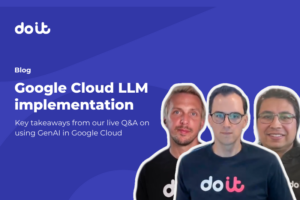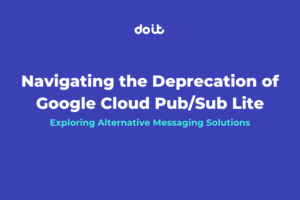Looker and Data Studio have become Looker Studio in a consolidation of the company’s business intelligence tools announced at Google Cloud Next ‘22
Google acquired Looker in 2020 to offer customers a comprehensive business analytics solution, and now the company is unifying its business intelligence product family under the Looker umbrella. This is part of a move to help companies make better informed decisions about operations by bringing more data into their workflows and applications. The move brings
together Looker and Data Studio, with Data Studio becoming Looker Studio.
We help you navigate the changes:
Looker
One of the key strengths that attracted Google to Looker was its semantic data modeling capability, which enables developers to determine data and analytics assets to ensure consistent interpretations. This does not change: Developers will continue to define their governance semantics, rules and layers in Looker, while end users will access that governed data to perform their data visualizations in Looker Studio.
Enterprise and corporate customers will still need Looker for the semantic layer that underpins the interpretations made in Looker Studio, and they will need an existing Looker environment to fully take advantage of Looker Studio Pro. Looker is targeted at enterprise customers with large numbers of users and offers:
● governance for key metric definitions
● robust data access permissions and security
● Self-service content creation underpinned by shared logic
● sharing, scheduling and alerting
● operational analytics
● ability to integrate analytics into existing tools and workflows
● embedded BI/analytics
● facility to create custom applications
Looker Studio
Previously known as Data Studio, Looker Studio is a data visualization platform that allows you to combine sets of data from sources including Google Sheets, Google Analytics and certain databases in one location so that you can use them to create reports that are easier to understand. Customers can blend self-service analytics from ad-hoc data sources and trusted data that has already been vetted and modeled in Looker.
As part of the standard Looker Studio offering, now in preview, users can leverage a connector to the Looker semantic layers. The connector allows customers to send data from a Looker instance to Looker Studio and use their Looker credentials to access Looker data to create a new data source in Looker Studio. Looker Studio users who want to use the connection to Looker must have a viewer license in Looker. Credentials cannot be shared or pooled.
The tool is still free and is suitable for business users who want business intelligence capabilities across all their data for:
● individual analysis
● one-off ad-hoc visualizations or reports
● single data source or small/pre-aggregated datasets
● spreadsheet data and .csv files
Looker Studio Pro
Looker Studio Pro is a paid service (starting at $7 per user per month for a non-commit customer)
set to launch in mid-November, which will offer additional functionality to Looker Studio. Customers who upgrade to Looker Studio Pro can look forward to new enterprise management features, team collaboration capabilities and SLAs.
It is designed for administrators or data teams at existing Looker Studio accounts who oversee all users in their Cloud Identity organization and want additional enterprise features, such as security integration, user management, project integration in Google Cloud and support. They will be able to share and give different permissions for different datasets and data subsets and oversee their entire Cloud Identity organization. However, neither Looker Studio nor Looker Studio Pro will offer semantic layer governance functionality. Only Looker offers that.
Where next
Even companies with all the right tools often fail to use data and analytics to engage in effective, data-driven decision-making. Partnering with an expert like DoiT will help you make the most of your data and analytics capabilities – whether or not you use the Looker family of business intelligence products. Armed with deep expertise and official partner competencies for data and analytics with AWS and Google Cloud, we can help you unlock the power of your data.



